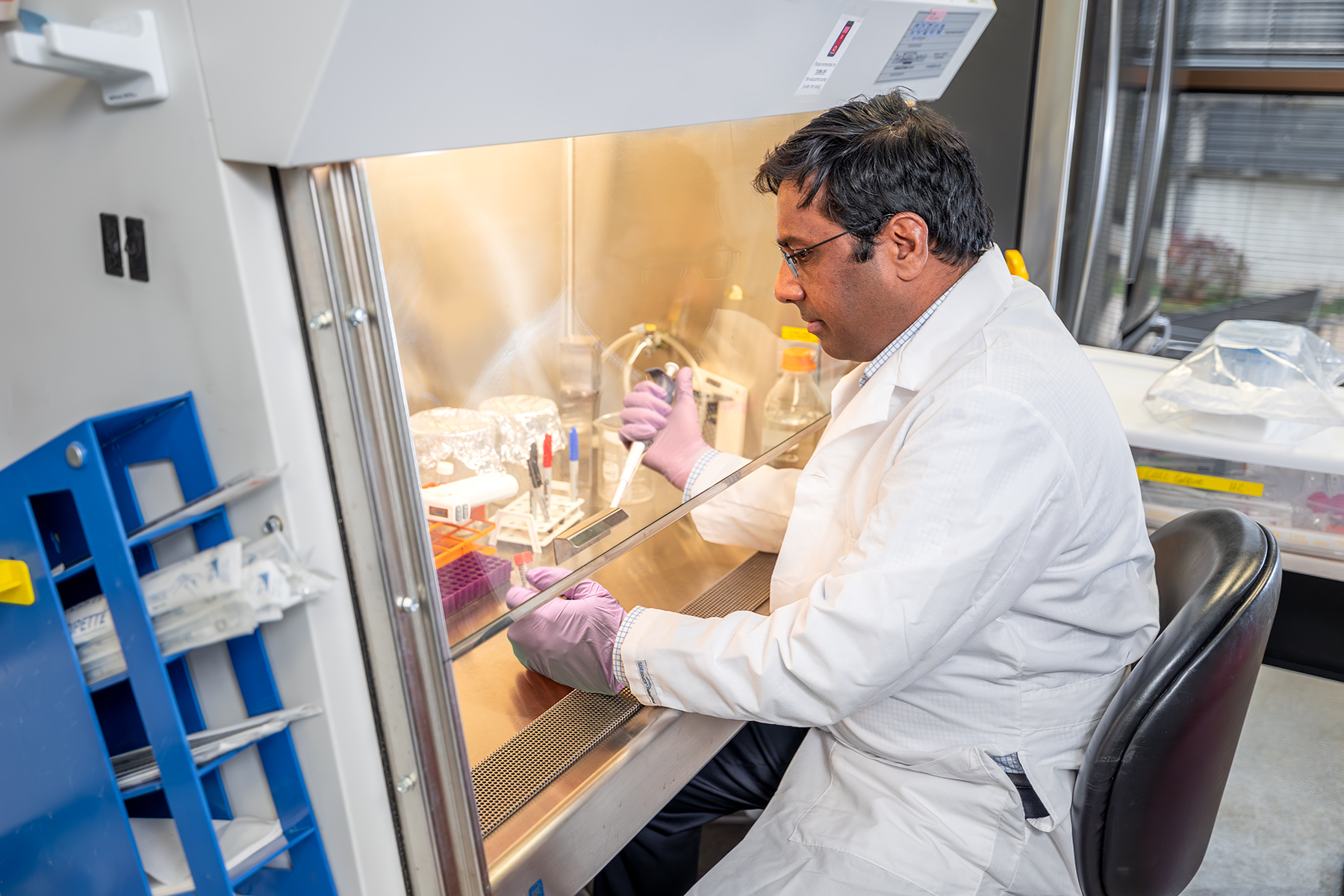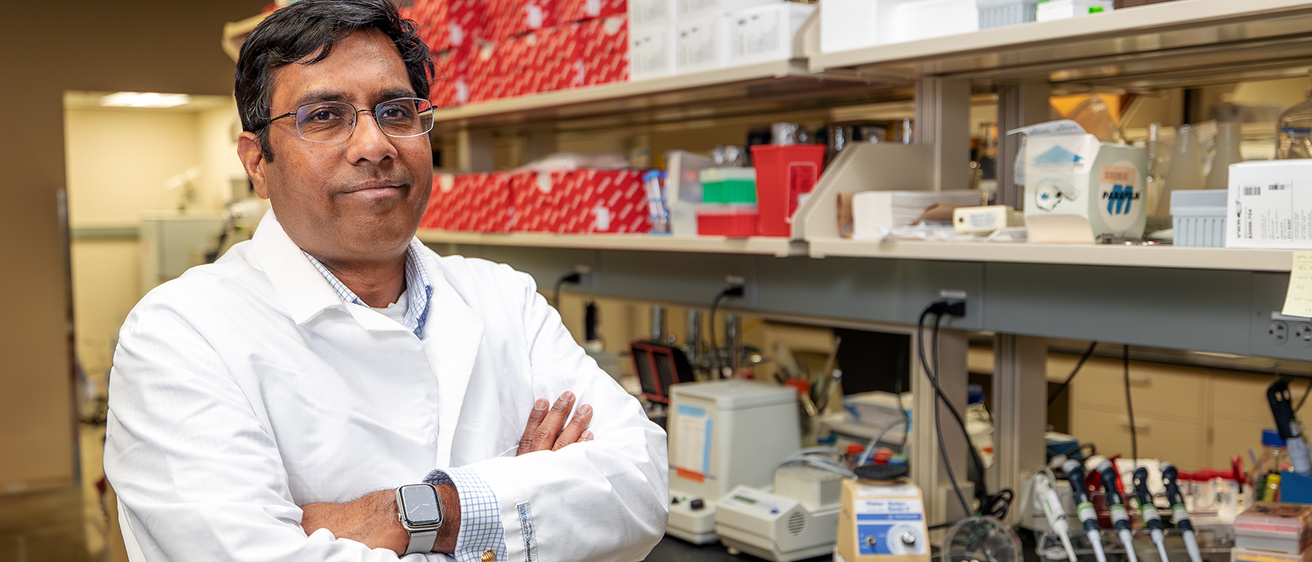Periodontal disease is caused by infections and inflammation of the gingiva (gums) and bones that support teeth. In some form or another, the disease affects almost 47% of the adults over the age of 30 in the United States and over 70% of adults over the age of 65.
There are strong associations between periodontal disease and various other systemic conditions particularly diabetes. These relationships are well established and often bidirectional. That is, diabetes can increase the risk of periodontal disease and vice versa.
Like many other diseases, prevention tends to be much more effective than treatments. Once established, periodontitis can only be controlled and not cured.
“If we identify and disrupt the disease process early before it becomes particularly destructive, periodontitis is relatively easy to prevent and reverse,” said Sivaraman Prakasam, associate professor and head of the Department of Periodontics.
Prakasam’s work on Peptidoglycan recognition proteins (PGRPs) hopes to add a tool for early identification and treatment of periodontitis that can help dentists and periodontists before periodontitis becomes difficult to treat.
PGRPs are known to recognize essential structures in bacteria.
“This recognition process has evolved over millennia such that their proteins effectively discriminate between good and bad bacteria, and thus helping the body produce an immune response against those bacteria that are harmful to the health of the organism,” explained Prakasam.
For one variety of PGRP, Prakasam and his research team found that those who are periodontally healthy have lower quantities than do those with periodontitis, and for another variety of PGRP, they found that those who are periodontally healthy do not have any of that PGRP expressed in samples, but high levels were found in those with periodontitis.

Rather than looking at these proteins merely as a biomarker for periodontitis, Prakasam and his team approached the issue another way.
“These proteins and their functions are poorly understood, so we are exploring what these proteins are doing and how they are interacting with the immune response beyond merely recognizing the unhealthy bacteria,” Prakasam explained.
Right now, it isn’t clear which direction the research will take them.
“We know that the proteins are highly increased in saliva and in tissues, but we don’t know why they are increased, We also found in gingiva an increase of these proteins in an unexpected cell type” said Prakasam.
The National Institutes of Health and the National Institute for Dental and Craniofacial Research awarded Prakasam and his team an R03 grant, an exploratory grant to develop preliminary data for a larger project, to explore the functions of these proteins.
“We used to think that these proteins just recognized good and bad bacteria, but now we are finding important and novel interactions and signaling from these proteins. Our goal is to better understand what these interactions and signals are doing so that we can develop therapeutic targets for periodontitis,” said Prakasam.
